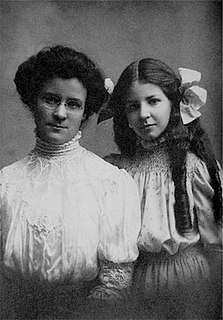A Quote by Florence King
In other countries, congenital introverts simply remain introverts all their lives, neither advancing nor retreating, but America's commitment to extroversion as a national art form can abrade some naturally aloof personalities until they flower into deadly nightshade.
Related Quotes
Introverts almost never cause me trouble and are usually much better at what they do than extroverts. Extroverts are too busy slapping one another on the back, team building, and making fun of introverts to get much done. Extroverts are amazed and baffled by how much some introverts get done and assume that they, the extroverts, are somehow responsible.
the present Western civilization ... is dominated by the extravert viewpoint. There are plenty of reasons for this domination: extraverts are more vocal than introverts; they are more numerous, apparently in the ratio of three to one; and they are accessible and understandable, whereas the introverts are not readily understandable, even to each other, and are likely to be thoroughly incomprehensible to the extraverts.
Some findings reveal extroverts as more adept at reading nonverbal cues, and attribute this to the extrovert's greater interest and experience with social interactions. Another line of research using subliminal images of facial emotion found introverts to be more sensitive to the differences, and hypothesized that this may be why introverts regulate the amount of incoming social information.
Introverts tend to internalize problems. In other words, we place the source of problems within and blame ourselves. Though introverts may also externalize and see others as the problem, it's more convenient to keep the problem "in house." Internalizers tend to be reliable and responsible, but we can also be very hard on ourselves.
Introverts need to trust their gut and share their ideas as powerfully as they can. This does not mean aping extroverts; ideas can be shared quietly, they can be communicated in writing, they can be packaged into highly produced lectures, they can be advanced by allies. The trick for introverts is to honor their own styles instead of allowing themselves to be swept up by prevailing norms.
Remember that introverts react not only to new people, but also to new places and events. So don’t mistake a child’s caution in new situations for an inability to relate to others. He’s recoiling from novelty or overstimulation, not from human contact. Introverts are just as likely as the next kid to seek others’ company, though often in smaller doses
.. it makes sense that introverts are uniquely good at leading intiative-takers. Because of their inclination to listen to others and lack of interest in dominating social situations, introverts are more likely to hear and implement suggestions. Having benefited from the talents of their followers, they are then likely to motivate them to be even more proactive. Introverted leaders create a virtious circle of proactivity.






























